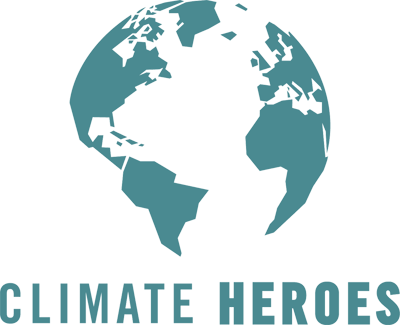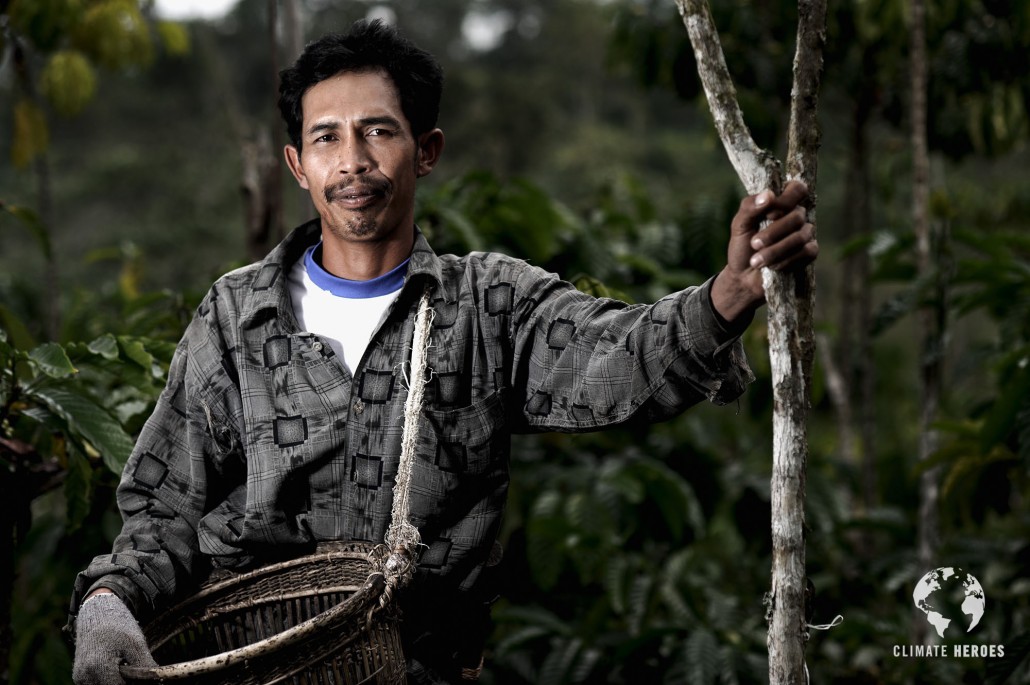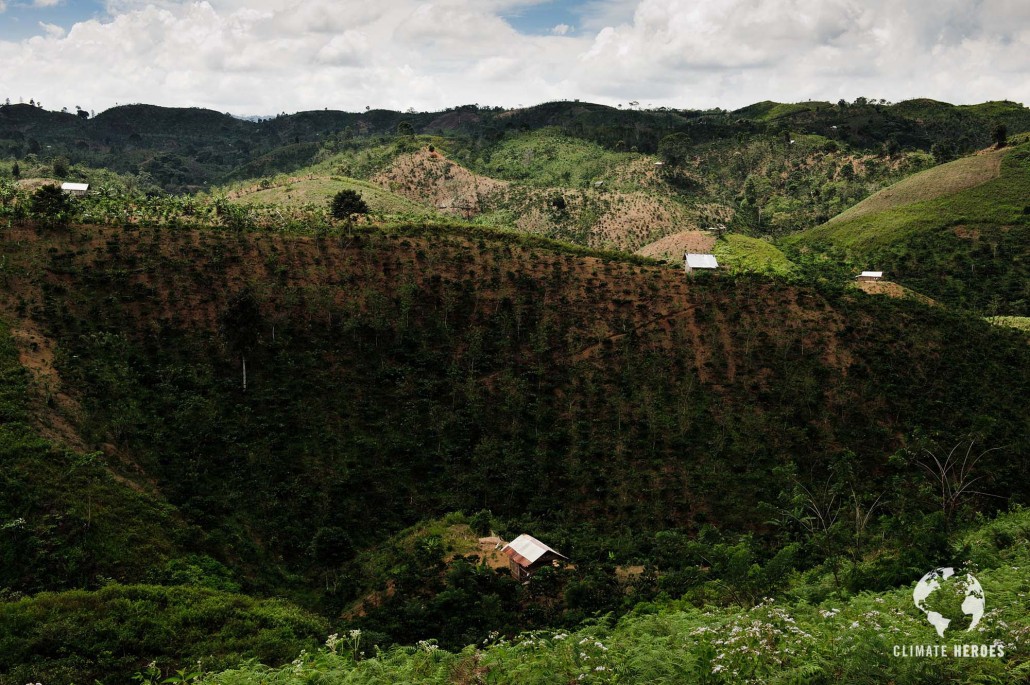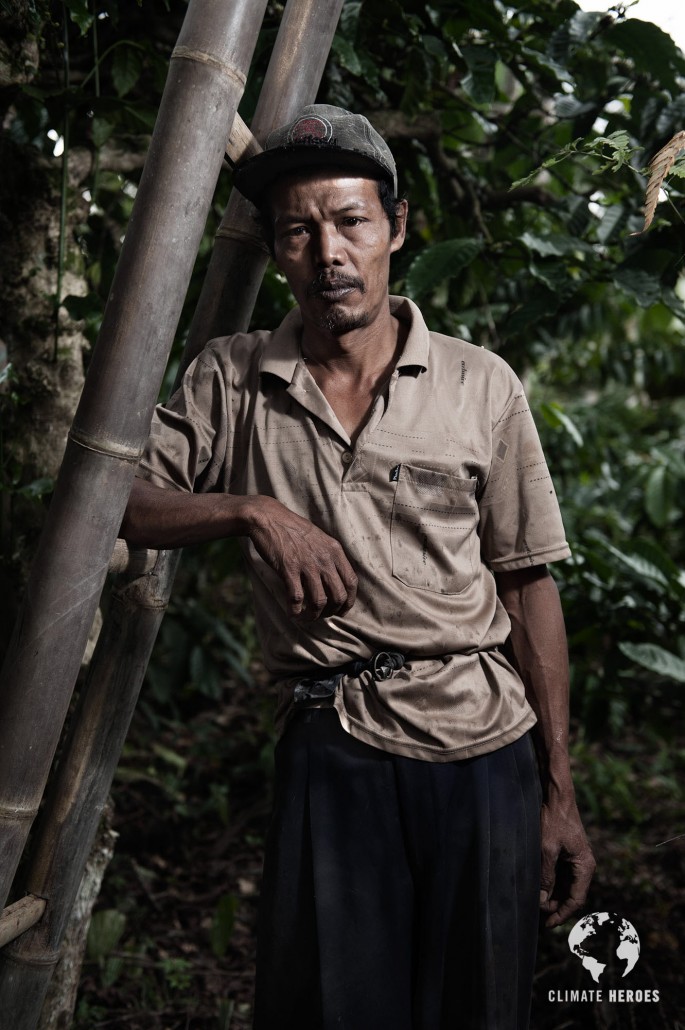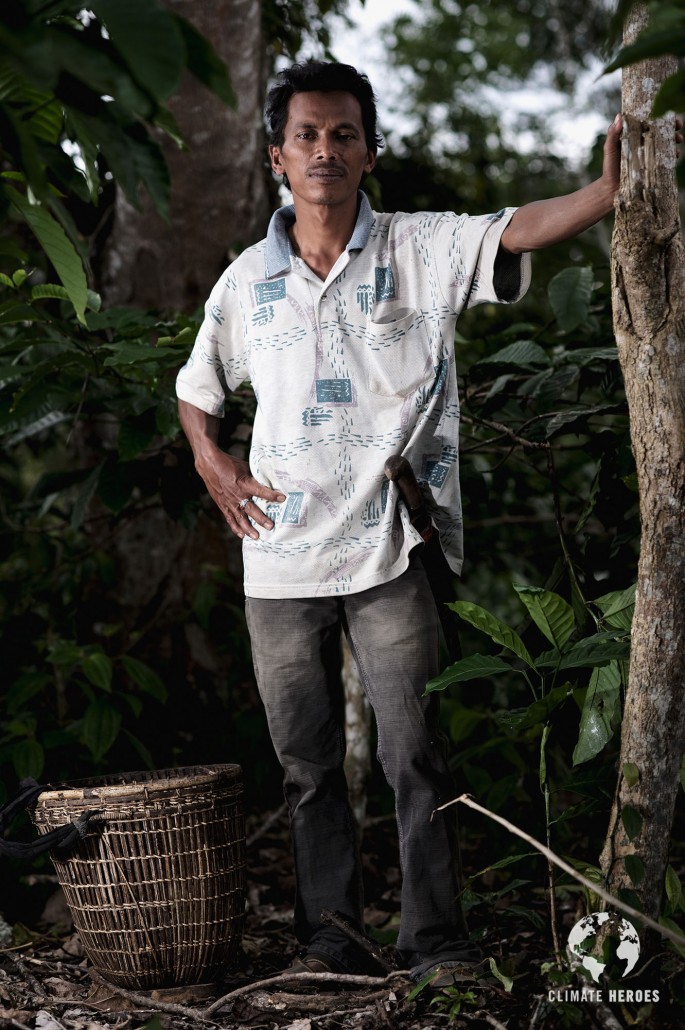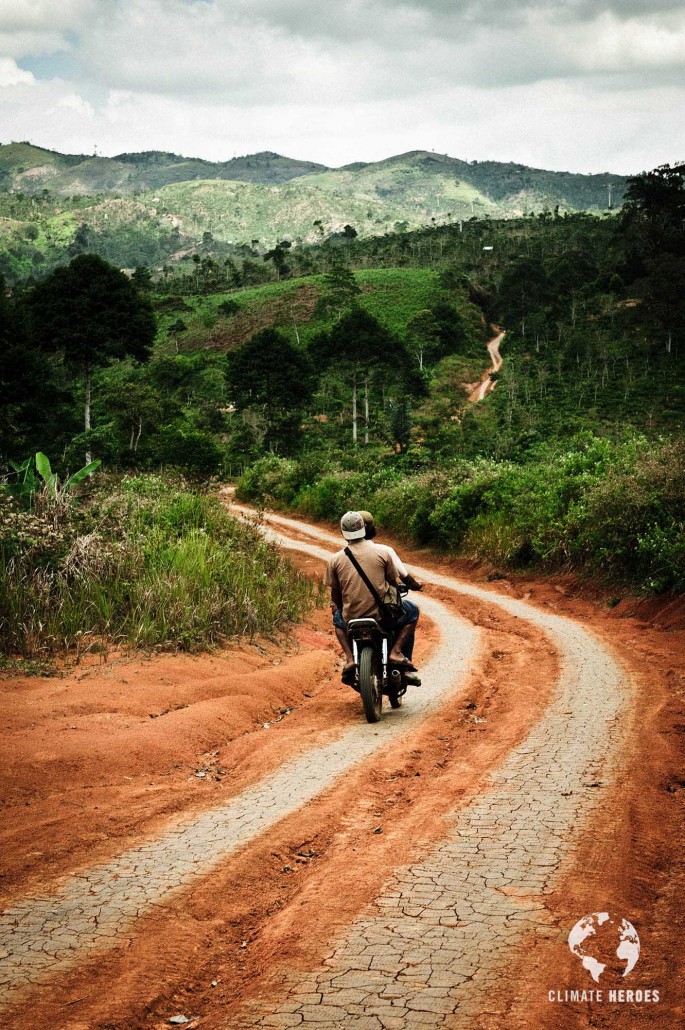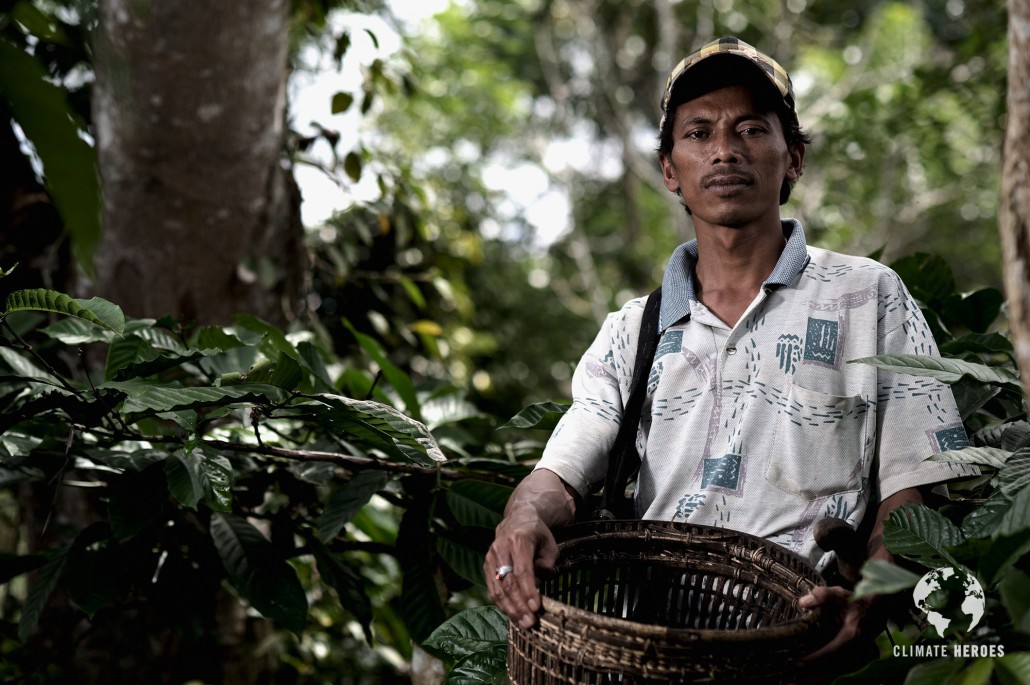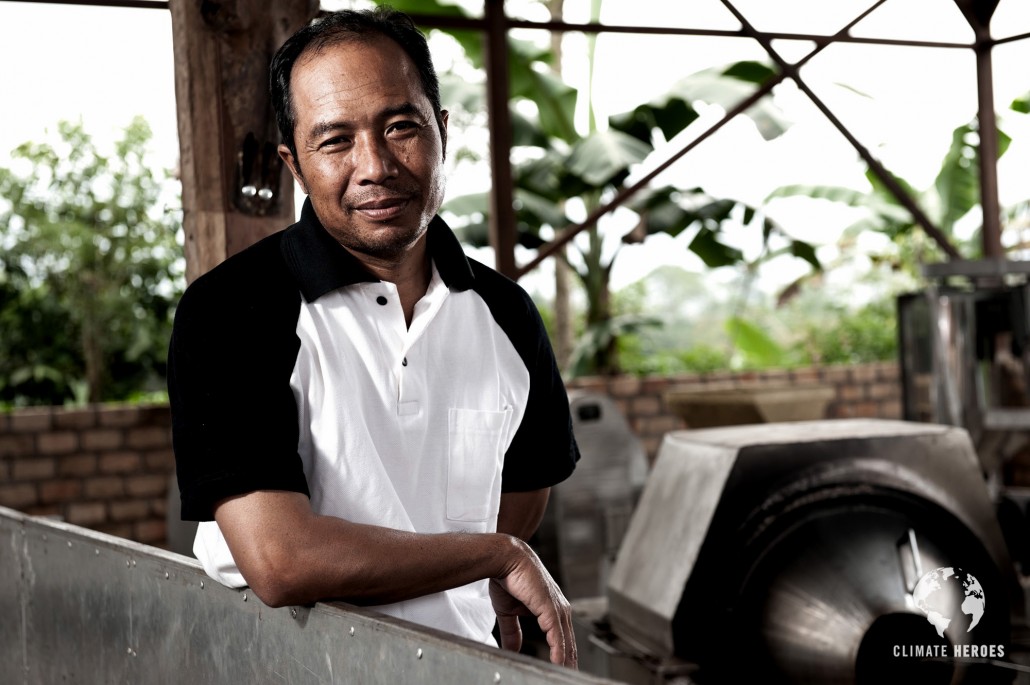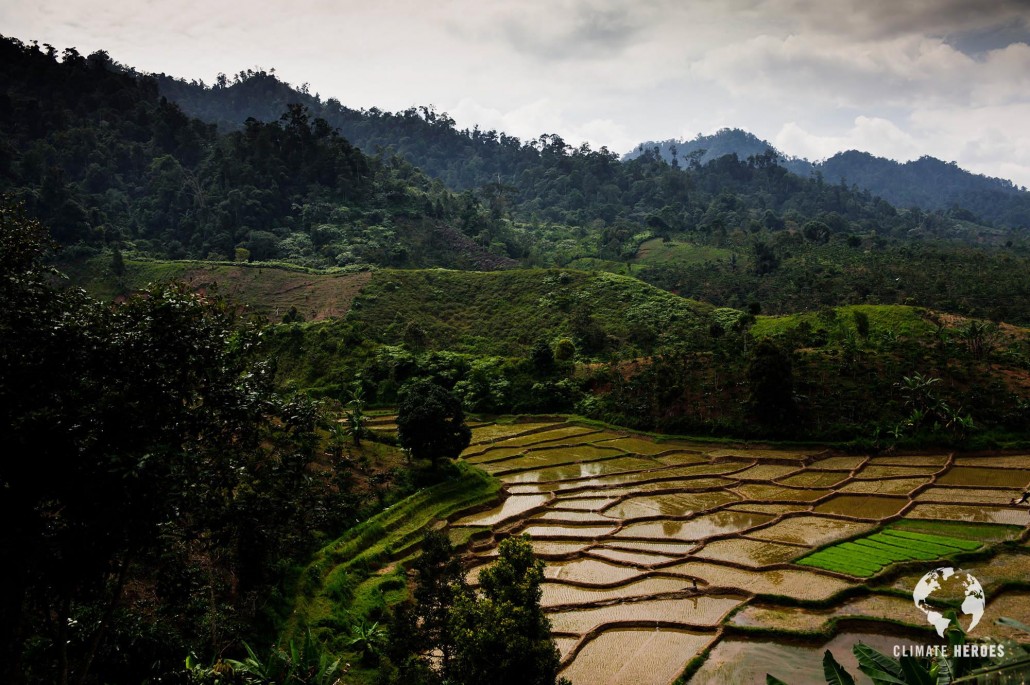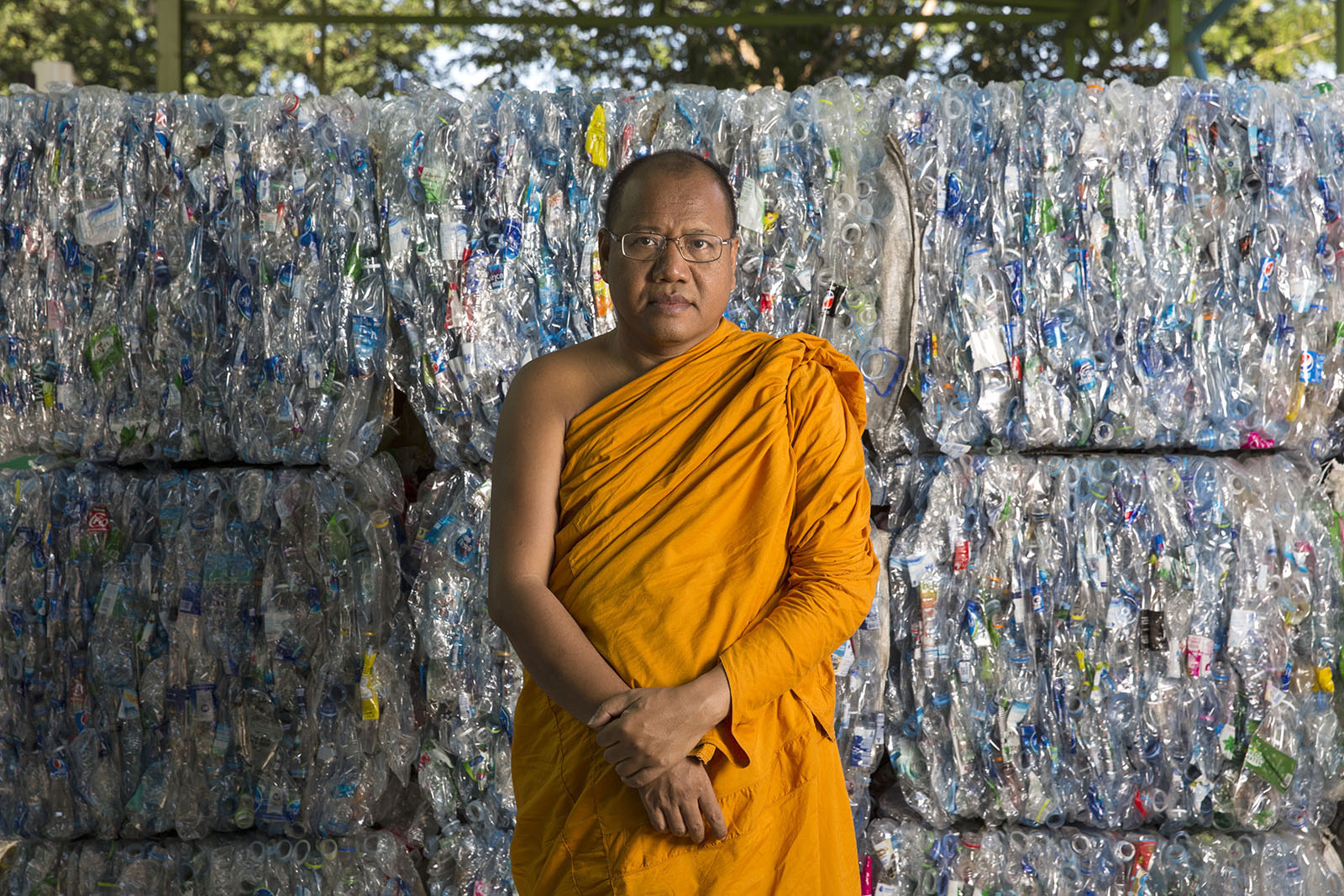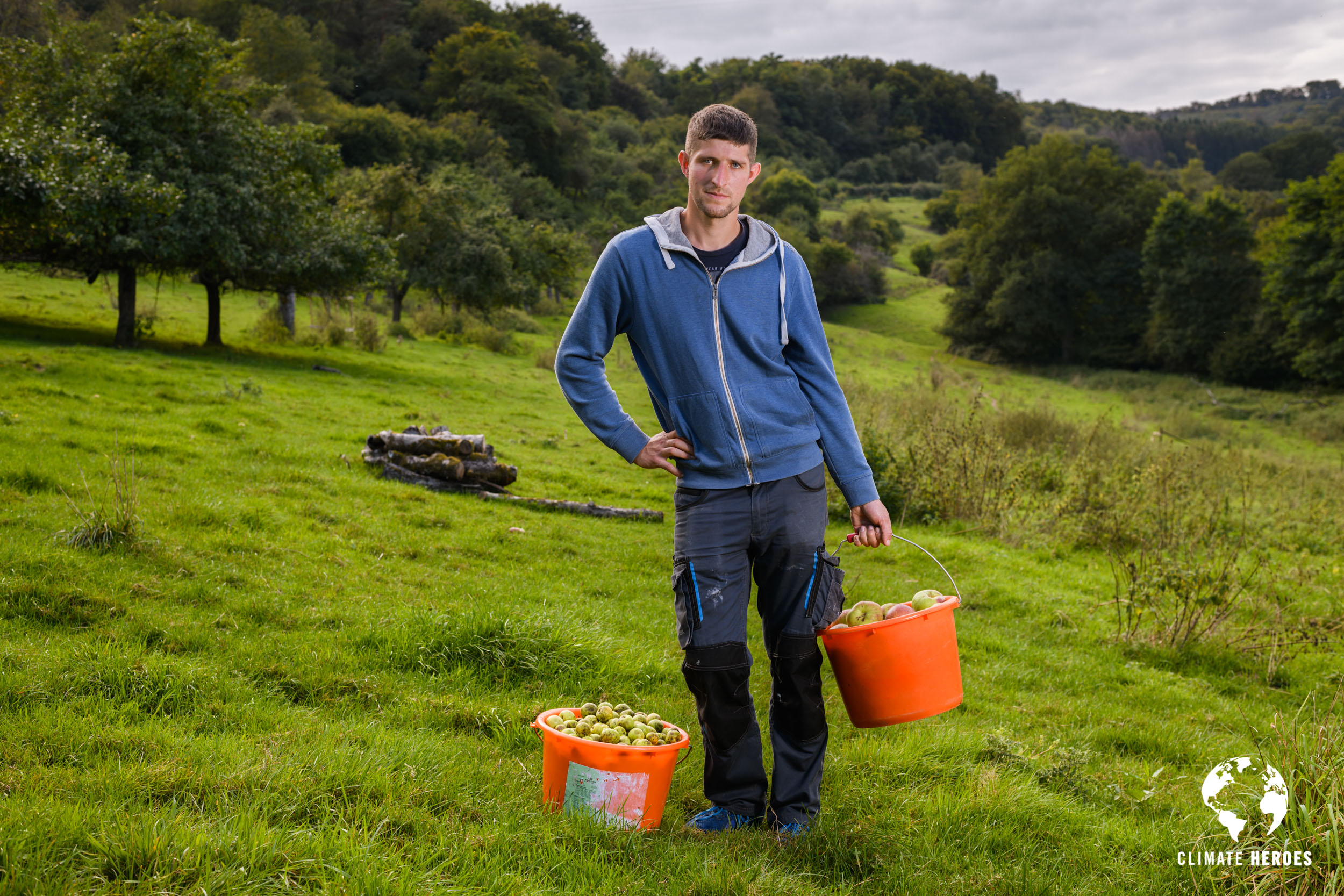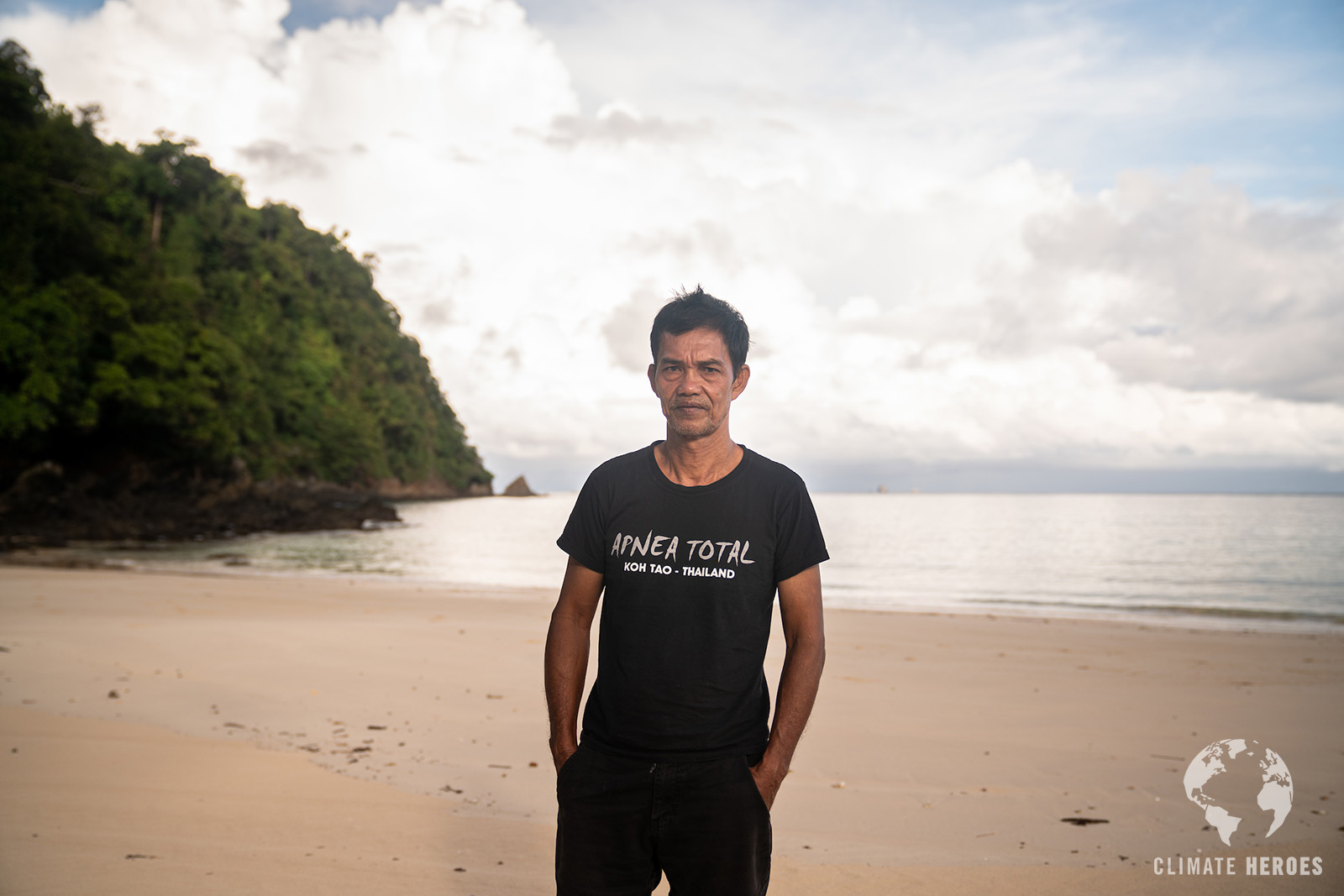Sumatra: Giving up illegal logging
How a group of Sumatran former-illegal loggers gave up their chainsaws and began to grow coffee.
After 30 hours spent in a hectic bus ride, the green, lush landscapes of South Sumatra start to change, revealing the real strike of deforestation. Controlled by the mafia, these lands are a kingdom of illegal loggers – a cohabitation of jobless immigrants making their ends meet, and government officials making their fortunes.
But in Gunung Terang, a small village in South Sumatra, deforested mountains were soon reconverted into tiny farms. Subari, Paryoto, Amir and many other villagers, with wooden caskets and rakes in their hands, grow sustainable-farming-certified coffee beans and vegetables. It would be hard to believe that these were the very same people that once pitilessly chopped the trees.
As of 2010, 40 to 61 percent of overall Indonesian timber production stems from illegal logging according to the WWF, and the Human Rights Watch estimates that this dirty business costs Indonesian government at least $2 billion due to corruption, uncollected taxes, unacknowledged subsidies, and general poor management of resources. These calculations do not include smuggling and unreported activities, as well as lost funding for health, education and development of local communities.
Worst of all, while the government signs international treaties and declares fighting against the issue, many of its officials and even some policemen are involved in orchestrating international illegal logging rings, an industry estimated to be worth more than $30 billion yearly.
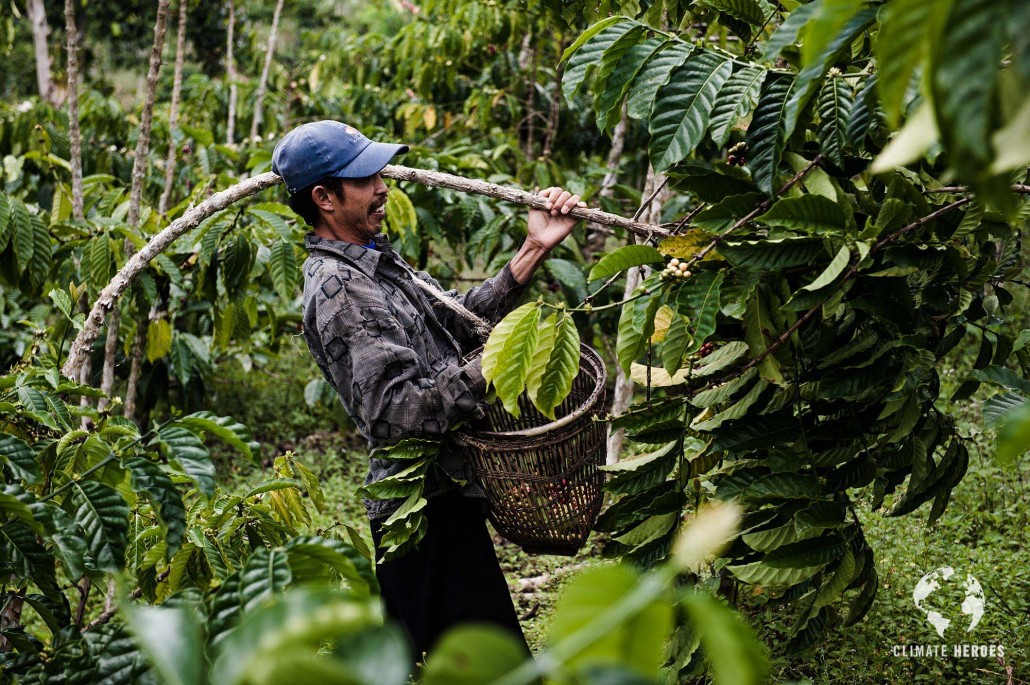
For many of the illegal loggers, being condemned by the police is an everyday routine. Mr. Paryoto, now a secretary of Gunung Terang, and a proud owner of a coffee processing facility, was no exception. One of the many jobless immigrant from Java, he found himself illegally shipping 4 trucks of wood to the capital daily. After two years in the business, Mr. Paryoto was arrested.
“I was thirty [back then],” says Mr. Paryoto. “I spent only three days in jail, but the police really scared me during these few days and I realized, [as] a wake up call, that what I was doing was really wrong.”
This is why, instead of spending many more days behind the bars, he struck a deal with the police, giving his promise to come back to Gunung Terang and monitor the area against illegal loggers, raising awareness of deforestation. The promise that he never broke made him an owner of the most influential coffee cooperative in West Lampung province – largest coffee producing province in Sumatra.
This is not an easily earned title: Indonesia is a third biggest exporter of coffee globally, and Sumatra is one of the major producing areas. Introduced by the Dutch in the 17th century, 90 percent of the Indonesia’s coffee is grown by plantations that cover 1.3 million hectares of land. No big surprise that coffee businesses are often accused of putting their hands into an already significant issue of deforestation.
But in Gunung Terang, where deforestation had more to do with illegal activities, the alternative, a sustainable farming model, as highly promoted by Mr. Paryoto, soon attracted many of the former illegal loggers. They acquired small pieces of land, turning them into coffee plantations. Others have chosen to grow fruits or produce brown sugar from coconut tree sap. They are all legal, small-scale farmers now, paying their fair share of taxes and contributing to the local economic growth of the region.
Amir, a second-generation immigrant from Java, now spreads his freshly picked coffee beans with a wooden rake, letting them dry in the bright sun. “I work hard every day to convince other illegal loggers to stop deforesting and join us,” he says. “I have been successful so far: We have been able to have more steady income, while also protecting our environment.”
In Amir’s fruit cooperative, two-dozen reconverted illegal loggers pick coffee, peppers and other fruits with their bare hands. They still remember having to operate dangerous machines under poor conditions, with no health or safety safeguards. For that, loggers received little payment, often becoming indebted to their logging bosses.
Today, the villagers have even managed to build four micro-hydroelectric power plants down the river that flows through the village, providing enough of electricity for the light bulbs installed in their households. This is the achievement that Subari, a 30-year-old villager that was also persecuted by the police and the rangers, is most proud of.
With South Sumatra being a hot spot for fire hazards during the summer, environment protection and business safety have a lot in common. So, with the help from the local NGO, Watala, Mr. Paryoto and co-op has led the whole community to be well aware of the downsides of the deforestation, as well as the main principles of sustainable land and forests management.
While watching for the forest, the villagers also protect themselves and their businesses that gradually become more and more successful. They now export their coffee into the rest of the island. But for Mr. Paryoto, the rest of the island is not enough. He has a dream: By end of 2014, he aims to open a global coffee market to all the local producers around his village and also export the coffee to the rest of Indonesia.
“We feel a lot better now,” says Amir, and he speaks for everyone in the village. While taking care of their fruits, brown sugar and the world-famous coffee, showing notes of cocoa, tobacco, smoke, earth, cedar wood and tropical fruits in a cup, they are also the real (climate) heroes.
